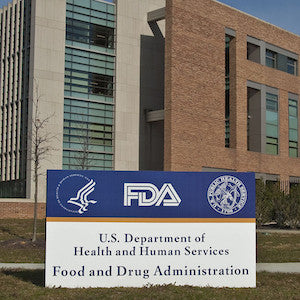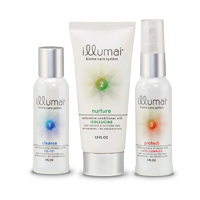Safe Cosmetics: How a Lack of US Regulations Endangers Consumers

Sep 15, 2016
Right now, the FDA has no direct authority to regulate the safety and effectiveness of cosmetic ingredients before they are used. There are some voluntary programs, and the FDA can move against companies that mislabel ingredients or make medical-like claims. But they are powerless to step in when 21,000 people claim that Wen makes their hair fall out.
As a matter of public policy, the only check against a "bad" ingredient in a personal care product is what's called “products liability” law. If you sell a product that causes harm, victims can sue you and collect damages for the harm caused.
So, as opposed to Europe, which regulates ingredients in advance of their use, the US allows manufacturers to use any ingredient without prior approval or testing. If it causes harm, there may be legal repercussions. But otherwise, manufacturers can use any chemical or ingredient they want.
There are literally thousands of chemicals currently used in shampoos and conditioners. Most have not been tested for safety, toxicity or effectiveness. According to the Environmental Working Group, women use an average of 12 personal care products a day, exposing themselves to 168 chemical ingredients. Men use six, exposing themselves to about 85 unique chemicals. So, what we have is a vast uncontrolled experiment with the American public: The public is being exposed to significant numbers (and amounts) of new chemicals, without regard to any inherent risk or worry about how those chemicals might impact the consumer or how they interact with one another.
It's amazing that there hasn't been a major problem ... at least a problem we know about. After all, we know chronic diseases like autoimmune disorders, asthma, allergies and inflammatory conditions are all on the rise. Why? Could it be the cumulative exposure to some of these 20th century chemicals? Stress? Diet? Who really knows?
That’s about to change. The Personal Care Products Safety Act, a bipartisan bill, was introduced by Sens. Dianne Feinstein (D-Calif.) and Susan Collins (R-Maine). Hearings were recently held. The Act would reform regulation of personal care products, requiring companies to ensure that their products are safe before marketing them and giving FDA the tools it needs to protect the public.
The Act would empower the FDA to review the safety of ingredients and would give the FDA the same tools for ensuring the safety of personal care products as it uses to regulate food and drugs:
- Companies would be required to register facilities.
- Companies would be required to disclose ingredients they use to FDA.
- Manufacturers would be required to ensure that products are made in a clean environment.
- FDA could inspect factories and records.
- Companies would be required to report serious adverse events to FDA within 15 days.
- FDA could require recalls of dangerous products.
- FDA could require specific labeling and warnings for products that contain ingredients not suitable for all populations.
We at illumai are committed to healthy beauty ... and to complete product safety. After all, our origin is rooted in medical science and the Hippocratic Oath: First, do no harm. So, despite some added cost, we support this legislation.
We have nothing to hide. We have sourced ingredients from legitimate US sources, and we have tested our key ingredients for sustainability and safety, addressing things like:
- biodegradability once the product is used;
- no absorption toxicity, even if accidentally ingested
- no skin sensitization
- no genotoxicity or developmental toxicity (genetic impact)
- no inhalation toxicity
- no bioaccumulation in any organism that we touch -- not customers, and not the “fish or frogs” that might encounter illumai after it's been used;
We do all this based on our company values, not because of regulation.
Yes, it will cost money to comply with these sorts of regulations. And thoughtlessly crafted regulation could create an insurmountable burden on new companies, like ours, that are bringing new, innovative products to market. (Big companies are fond of "level playing fields," provided that they are very, very high: If you need $1,000,000 for regulatory compliance before bringing a new cosmetic product to market, only the biggest companies can afford to do so.)
But regulations CAN be crafted to maintain an environment conducive to innovation and entrepreneurship. For example:
- once an ingredient is vetted -- by any company -- the approval could go into the public domain, and any new company can use that ingredient w/o further regulatory action.
- a "small business exception" can be made for companies with less than, e.g., $1m in sales, provided that product liability insurance is in place to protect any victims if an ingredient should prove harmful. Yes, that does expose some people to an unregulated situation -- but many fewer than today. And the good news is that it allows innovators to prove market demand and effectiveness before they have the burden of affirmatively proving ingredients safe. And the products liability insurance carrier won’t let bad actors use highly risky ingredients.
We are a small company bringing an innovative, patented, very unique product to market. We have ensured that our 7 simple ingredients are fully consistent with health ... and they really work. We'd be happy to prove it, too! Healthy beauty!
Learn More . . .

Cocamide DEA - How Can a "Natural" Ingredient Cause Cancer?

Biome Care - Healthy Hair Starts Here


